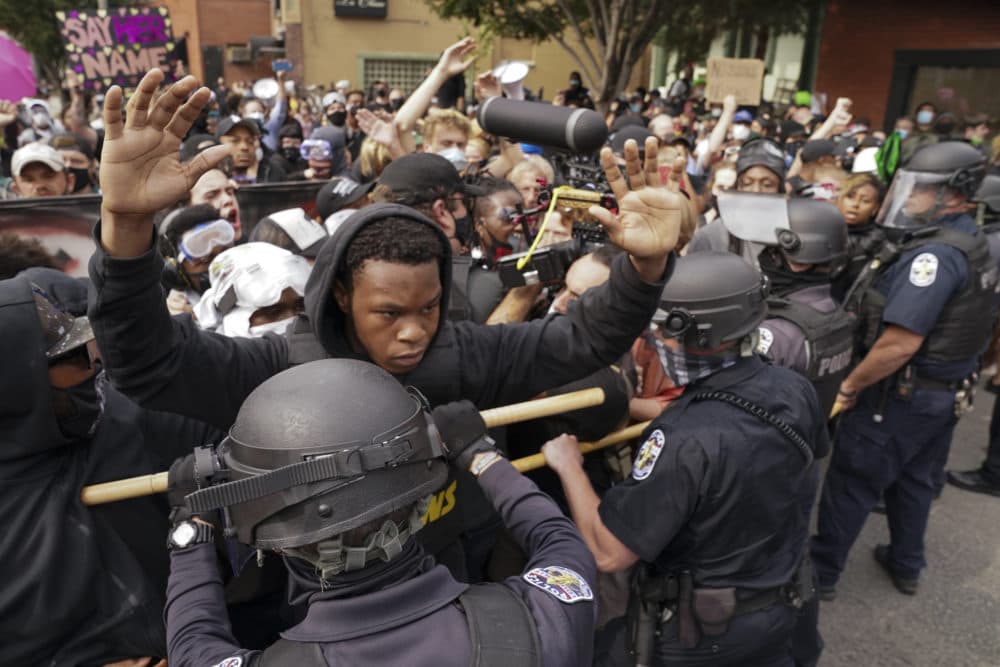Advertisement
Police Killings Decreased In Cities That Saw Black Lives Matter Protests, Study Finds
Resume
Black Lives Matter gained prominence after the 2014 police killing of Michael Brown in Ferguson, Missouri. Since then, the movement has spread to hundreds of cities across the country.
A new study published in the Social Science Research Network finds that the number of killings by police has decreased in most cities where regular BLM rallies occur in comparison to places with no BLM protests. The study analyzed data on police killings nationwide from 2014 to 2019.
Travis Campbell, the author of the study and an economist at the University of Massachusetts, Amherst, says cities where protests occurred saw the use of lethal force by police officers drop 15% to 20% below the expected trend.
“I think the study makes it clear that the protests are having a sizable impact on lethal use of force by the police,” he says.
Using a technique called difference in difference, researchers sorted the cities into two groups, he says, and then compared the use of lethal force before and after the protests began.
One explanation for the change is protests make local police more likely to wear body cameras and expand community policing efforts, he says. And Campbell finds evidence of a reduction in community reporting of low-level crimes and what’s called the “Ferguson effect.”
“Protests increased public scrutiny of the police and police respond by having lower morale or effort,” he says. “Because the police are arresting less people, reducing the number of interactions between the police and civilians reduces the lethal use of force.”
The data does not include killings and protests from 2020. Campbell says he’s “sure” protests spread to cities that hadn’t seen them before last summer but he hasn’t studied the data, adding that he’s been working on this paper for several years.
Research has shown Black Lives Matter protests are more common in Democratic-leaning cities, he says. And anecdotal information suggests that left-leaning cities are more likely to have COVID-19 lockdowns, he says, which could reduce the use of lethal force with people going outside less often.
“Given the size and persistence of the Black Lives Matter movement, I find the lack of rigorous research on the topic extremely surprising,” he says. “To solve a lot of the issues, we need to have an honest conversation about both the benefits and the costs of this social movement and how the police should respond and the impact it's having on local communities.”
Alexander Tuerk produced and edited this interview for broadcast with Todd Mundt. Allison Hagan adapted it for the web.
This segment aired on March 12, 2021.

